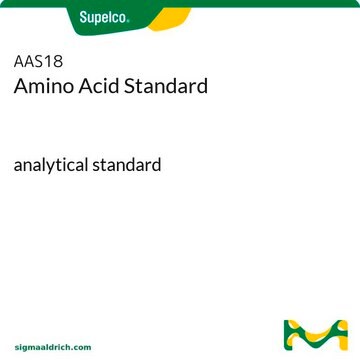45842
Diazinon solution
100 μg/mL in acetonitrile, PESTANAL®, analytical standard
About This Item
Produits recommandés
Qualité
analytical standard
Niveau de qualité
Gamme de produits
PESTANAL®
Durée de conservation
limited shelf life, expiry date on the label
Concentration
100 μg/mL in acetonitrile
Technique(s)
HPLC: suitable
gas chromatography (GC): suitable
Application(s)
agriculture
environmental
Format
single component solution
Température de stockage
2-8°C
Chaîne SMILES
CCOP(=S)(OCC)Oc1cc(C)nc(n1)C(C)C
InChI
1S/C12H21N2O3PS/c1-6-15-18(19,16-7-2)17-11-8-10(5)13-12(14-11)9(3)4/h8-9H,6-7H2,1-5H3
Clé InChI
FHIVAFMUCKRCQO-UHFFFAOYSA-N
Vous recherchez des produits similaires ? Visite Guide de comparaison des produits
Description générale
Application
Informations légales
Mention d'avertissement
Danger
Mentions de danger
Conseils de prudence
Classification des risques
Acute Tox. 4 Dermal - Acute Tox. 4 Inhalation - Acute Tox. 4 Oral - Aquatic Chronic 3 - Eye Irrit. 2 - Flam. Liq. 2
Code de la classe de stockage
3 - Flammable liquids
Classe de danger pour l'eau (WGK)
WGK 3
Point d'éclair (°F)
35.6 °F - closed cup
Point d'éclair (°C)
2 °C - closed cup
Équipement de protection individuelle
Eyeshields, Faceshields, Gloves, type ABEK (EN14387) respirator filter
Faites votre choix parmi les versions les plus récentes :
Déjà en possession de ce produit ?
Retrouvez la documentation relative aux produits que vous avez récemment achetés dans la Bibliothèque de documents.
Les clients ont également consulté
Notre équipe de scientifiques dispose d'une expérience dans tous les secteurs de la recherche, notamment en sciences de la vie, science des matériaux, synthèse chimique, chromatographie, analyse et dans de nombreux autres domaines..
Contacter notre Service technique












